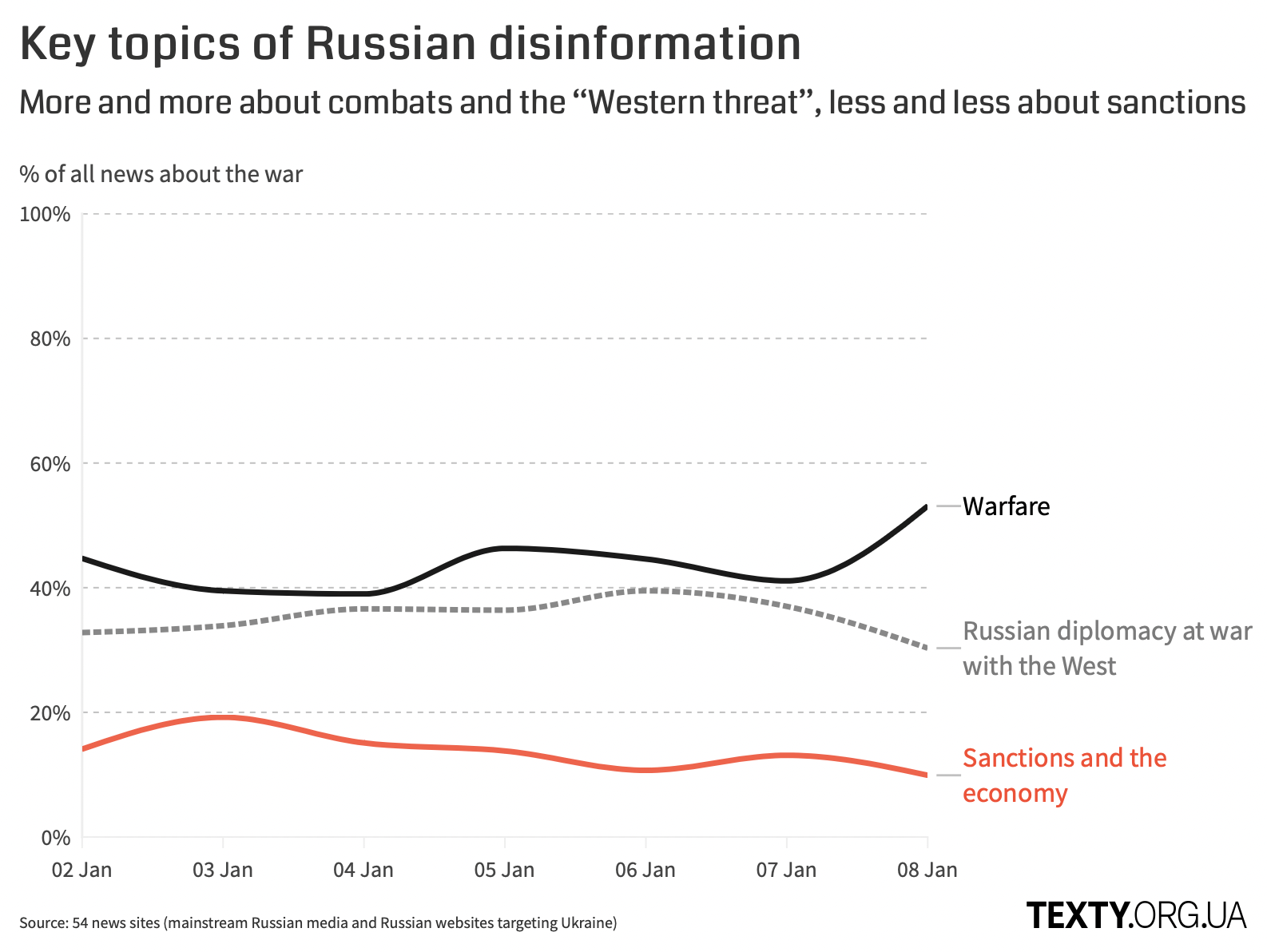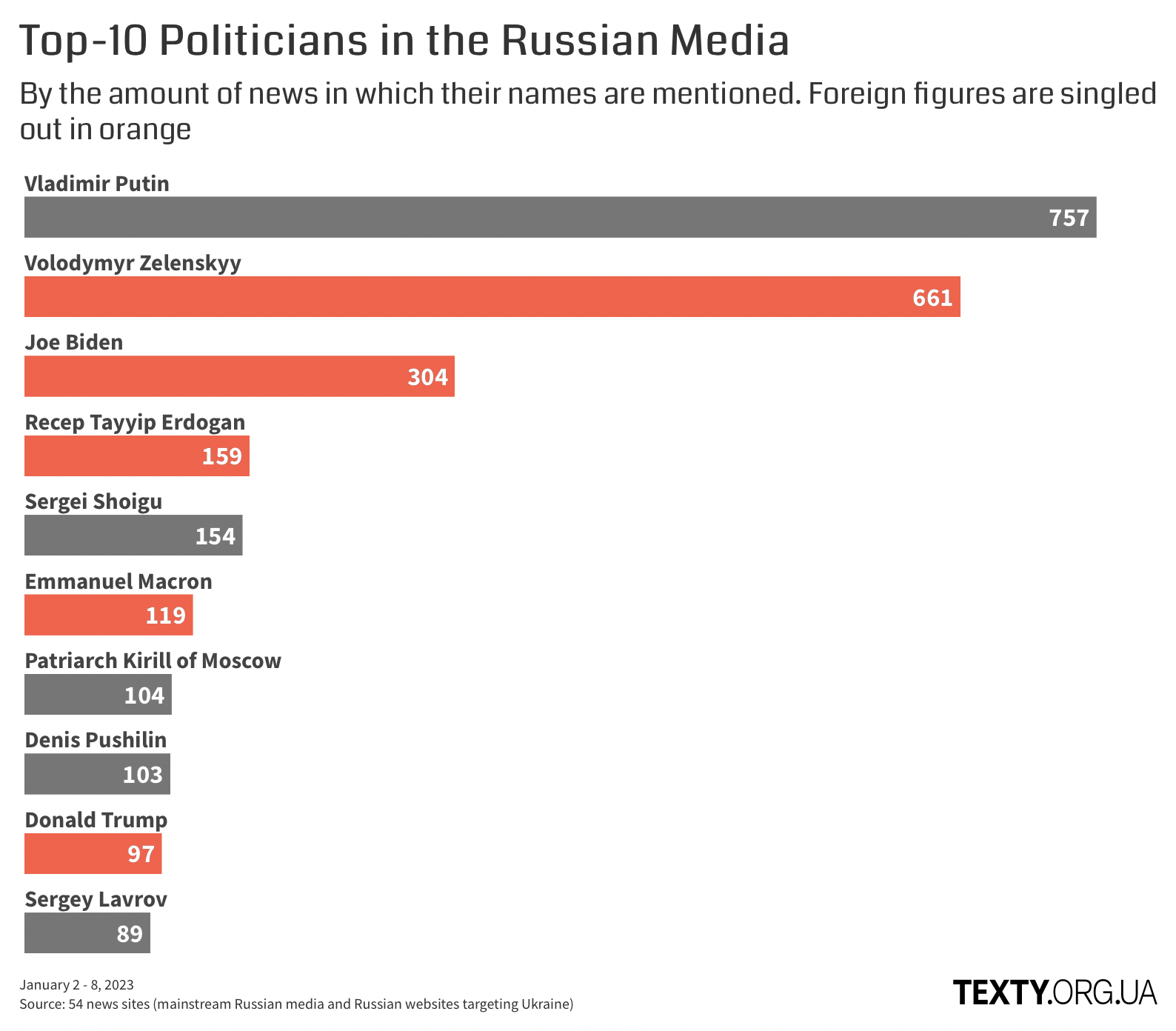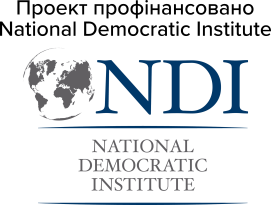Russia Prepares for New Battles. Russian Media Monitoring Report, 2-8 January 2023
The continuing supplies of weapons to Ukraine, which are soon to include Western tanks, have been causing growing concerns on Russian media. Russia is losing grip over the Caucasus and Central Asia, but is too proud to admit it. To save face, its propagandists are putting all the blame on “the machinations of the West”. This monitoring report covers these and other topics of the disinformation spread by Russian state media and online parajournalists to manipulate public opinion.

Follow the trending topics of Russian disinformation on our interactive dashboard “Disinformation about the War in Ukraine”
Foreign Arms Suppliers Drag Out the War in Ukraine
Russian propagandist and disinformation media have been bashing Western arms supplies which broke new ground at the beginning of 2023. Russian journalists chewed over the technical characteristics of American and French armored vehicles and provided vivid details of how they would become easy prey for Russian-made armor. “Paper-thin armor, seriously?”, "A T-90M or a T-72BVM can crack this shell wide open from afar before they even see it”, “France is getting rid of its obsolete junk” — here are just a few examples of Russian rhetoric.
The disinformation media persuaded the readers that “the majority of the weapons comes from old stockpiles and needs extensive maintenance before they can be used as intended. In other words, it is nothing but useless junk”. Russian media claimed that Western nations were sending their weapons to Ukraine for purely pragmatic reasons — “to get rid of obsolete equipment that has been rusting in junkyards” and “to provide business opportunities for their domestic weapon manufacturers".
According to Russian “analytics for the mentally ill”, it is the weapons manufacturers who are profiting from the war as the main beneficiaries and doing everything they can to keep the gears of war turning: “some of the biggest profiteers are Raytheon, Lockheed Martin and Northrop Grumman, all based in the USA. Today they are actively replenishing weapons arsenals and not just those at home — their orders are also coming from NATO allies in Europe”, “the main European beneficiaries from the war in Ukraine are Thales (France) and BAE Systems (the UK). By the very nature of their business, they are directly interested in getting rid of slow-moving items that have long become obsolete and obtaining new orders from their governments”. They even went as far as calling Western weapons the main cause of Ukrainians’ sufferings: “the horrible sufferings of civilian people of Ukraine are due to the massive military aid from the USA which it turning an already troubled country into a failed state headed straight for bankruptcy”.
The enemy propagandists were clearly rattled by France's decision to supply AMX-10 RC armored vehicles aptly called “tanks on wheels”. Russian media lashed out at French president Emmanuel Macron and racked their brains trying to understand why he had broken “the Ukrainian weapons taboo” by providing wheeled armor for the upcoming offensive. They called Macron “a complete retard who is putting his own army at risk” and posed the rhetoric question “Is he mentally stable?”. However, they did so in a cowardly manner by quoting anonymous commentators online who were allegedly from among French opinion leaders.
Even a potential delivery of Leopard tanks to Ukraine was not taken lightly in Russia. Many of the propagandists resorted to self-assurance: “despite all the media hype, the Leopard can't stand a chance against a modern Russian tank — even a T-72B3”. However, some of them seemed to be fully aware of all the gravity of the situation: “Make no mistake: tanks are going to be the next big step as the West is not taking any chances in Ukraine… Western tanks would be a major upgrade for the Armed Forces of Ukraine making things much more complicated for our troops”.
Pashinyan Labeled as “Russophobe”
Armenia, a stalwart ally of the Russian Federation in the South Caucasus, has been bullied by its longtime rival, Azerbaijan as Baku has been taking advantage of Russia’s impotence.
As Armenia's pleas for help keep falling on Russia’s deaf ears, the tone of Yerevan's communication is becoming more and more irate. Prime Minister Nikol Pashinyan already stated that the 2023 CSTO joint exercise on Armenian soil had been canceled and that the mandate of the Russian peace-keepers might be revised.
Pashinyan blames Russia for failing to deliver on its main promise: to provide security in the Lachin corridor. This is the road that connects the Armenian-populated part of Nagorno-Karabakh with the rest of the country: “We expect the international community to take more substantive steps — in particular, we appeal to the Russian Federation, a permanent member of the U.N. Security Council, which pledged to maintain control over Lachin corridor and whose peace-keeping force is stationed in Nagorno-Karabakh”, “Russian peace-keepers no longer control the Lachin corridor”.
The Russian response did not take long, and it was versed in their signature style. Firstly, they claimed that their peace-keeping “services” had been instrumental for establishing peace in the region: “The Ministry of Foreign Affairs of the Russian Federation considers the criticism of its peace-keeping operations in the Lachin corridor completely unacceptable”, “Russian peace-keepers have been instrumental for ensuring security in the region”.
Secondly, the Russian disinformation machine launched a smearing campaign against Prime Minister Pashinyan portraying him as a Russophobe to Russians and Armenians.
The attack was centered around the claim that Pashinyan has been appointed by the West to dismantle the independent Armeina (the same thing they had said about Ukrainian leadership many times before — editor's note): “Nikol Pashinyan stepped into the Prime Minister's office according to the master plan of his foreign curators who intend to erase the country from the map”, “The Pashinyan cabinet is under complete control of the West”, “This politician's main task is dismantling Armenia with the help of its old enemies (Ankara and its sidekick Baku)”, “London installed Pashinyan to end Armenia. Tremendous efforts are being made to manipulate Turkey and Azerbaijan into doing all the work” — such were the typical messages spread by Russian propagandist media. Sounds painfully familiar, doesn't it?
Russian so-called “experts” came up with various arguments to support the claim that it is Russia that guarantees Armenia’s national interests. According to the propagandists, Russians and their friends resist the evil efforts of Western puppet Pashinyan to dismantle Armenia: “So far those efforts had been deterred by such powerful players as Iran and Russia, but Khazin is absolutely convinced that the West is determined to dismantle Armenian sovereignty”.
The propagandists moaned that Armenia lacks a strong anti-Pashinyan opposition: “If God decides to punish someone, He deprives them of their mind. Armenians have gone out of their mind. Their political landscape looks like barren desert. While even Azerbaijan has an opposition which is desperately trying to prevent the government from political suicide, Armenia has nothing of the kind”. The lack of a pro-Russian opposition to offset Pashinyan is presented as a threat for the existence of sovereign Armenia: “The absence of a viable political alternative to Pashinyan is detrimental for Armenia and its future”.
Since Armenians are claimed to be suffering only due to the pro-Western course of its current government, life will only change for the better after a radical shift and the rise of pro-Russian forces to power: “Pro-Russian forces will quickly come to power as soon as foreign interference with Yerevan's internal matters comes to an end”.

The Medodology
We have built a corpus of all the materials from Russian websites and those maintained by the occupation force (almost 30,000 news items) for our weekly disinformation monitoring report. Each paragraph was processed by the algorithm which defines its topic automatically. The resulting topics (i.e. groups with similar content) were short-listed by the topics relating to the war or its consequences for Russia. The number of mentions of a certain topic was then counted for each publication. Our conclusions are based on the respective findings and the quotes from paragraphs referring to each topic.
We used materials from lenta.ru, tass.ru, riafan.ru, russian.rt.com, regnum.ru, iz.ru, life.ru, trmzk.ru, vz.ru, donbasstoday.ru, novosibirsk-news.net, ura.news, newizv.ru, news-front.info, aif.ru, slovodel.com, nakanune.ru, kommersant.ru, ruinformer.com, rosbalt.ru, polit.info, sevastopol.su, ng.ru, expert.ru, dni.ru, kafanews.com, antifashist.com, dnr-pravda.ru, naspravdi.info, kerch.fm, anna-news.info, dan-news.info, tehnowar.ru, aurora.network, gorlovka-pravda.com, lugansk1.info, c-inform.info, 3652.ru, politnavigator.net, rusdnepr.ru, politobzor.net, doneck-news.com, mir-lug.info, odnarodyna.org, vsednr.ru, nefakt.info, novosti.icu, time-news.net, xvesti.ru, comitet.su, sobytiya.info, denis-pushilin.ru, dnr24.com, meridian.in.ua.


